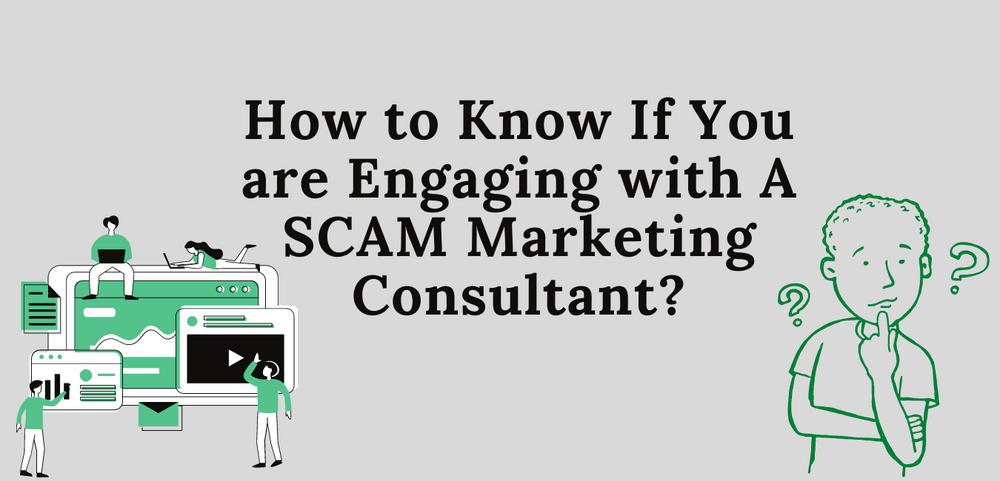Marketing consultant woes are the most prevalent after a book is published. They are certain to occur sometimes. While book marketers must expand an author’s zone of influence, finding the appropriate one is very difficult.
When writers receive calls from marketing companies, they usually do additional research online. However, the internet is flooded with unreliable sources of book content—specifically, shady online book consultants. For this reason, writers have low confidence in book marketing companies. This disappointment dramatically stymies an author’s ambition to succeed in the literature industry.
What are we going to do with the unethical sites that would prevent other new writers from being misled? To recover the confidence of writers who have been victimized by marketing consultant fraud, can we find a better way? Is there some way to save the image of ethical publishing firms?
Identifying fraudulent customer-led marketing frauds:
Identification of online book marketing fraud does not involve having a high IQ. Even so, accomplishing this doesn’t remain easy.
Make a concerted effort to be consistent with the marketing consultant’s communications.
As desperate as marketing is to close a deal, marketing consultants often sweeten an author’s stock so that a proposal can taste more palatable (s). “While all of these claims are right, some of them aren’t.” By promising services that are not included in the bundle, writers often become too eager to purchase the contract. As the discussion continues, writers fail to note that the incentive disappears, and the deal starts to become inconsistent. Remember to write down notes while you are speaking to a book marketer. Before buying the deal, examine what you have written to ensure that it is relevant to your needs. Check for contradictions.
Seek Information on the Company’s Website.
A company’s website serves as a representation of the organization and the ideals that its management and the staff uphold. Look at how a website is constructed, and note the text, and you will know many things about it. You can also use the company’s book details when you talk to your book consultant; in addition, you can equate your details with the information you see on their website. And sometimes, the website elicits queries that writers have to put up.
Observe How a Question is Answered.
When inquiring about the organization or its facilities, insist on direct response. Scams also use ambiguity to divert the authors’ attention away from their questions. Many clients have unrealistic expectations because consultants persuade them with glitzy promises to do anything for them. Often go straight to the point (s). If you believe the response is ambiguous, insist on the consultant walking you through the specifics.
The Counter Narrative
There are occasions when the author might be at fault. Unfortunately, they did explain the aspects of the service clearly but did, so that put the consultants in the wrong. Authors must understand that someone else is taking notes, too. Additionally, phone calls are registered to allow management to determine whether any prospective clients are being scammed.
A strict book marketing company ensures that their image remains unblemished, despite the negative press associated with this type of firm. Apart from avoiding book marketing scams, writers must also find the right consultants. Compatibility is critical to the success of a book. This prohibits writers from labeling legitimate business activities as scam schemes when they are not.
Authors will profit significantly from reviewing the following strategies in the sections above for detecting fraudulent book marketing techniques. Preventing themselves from being prey to the influence of a marketing agent will benefit first-time writers who want their books to be marketed by someone who doesn’t fall for marketing gimmicks. Finally, the new writers will be exposed to other means of selling their books, which are less likely to be frauds.

Pingback: A Novice Guide to eBook - Quantum Discovery